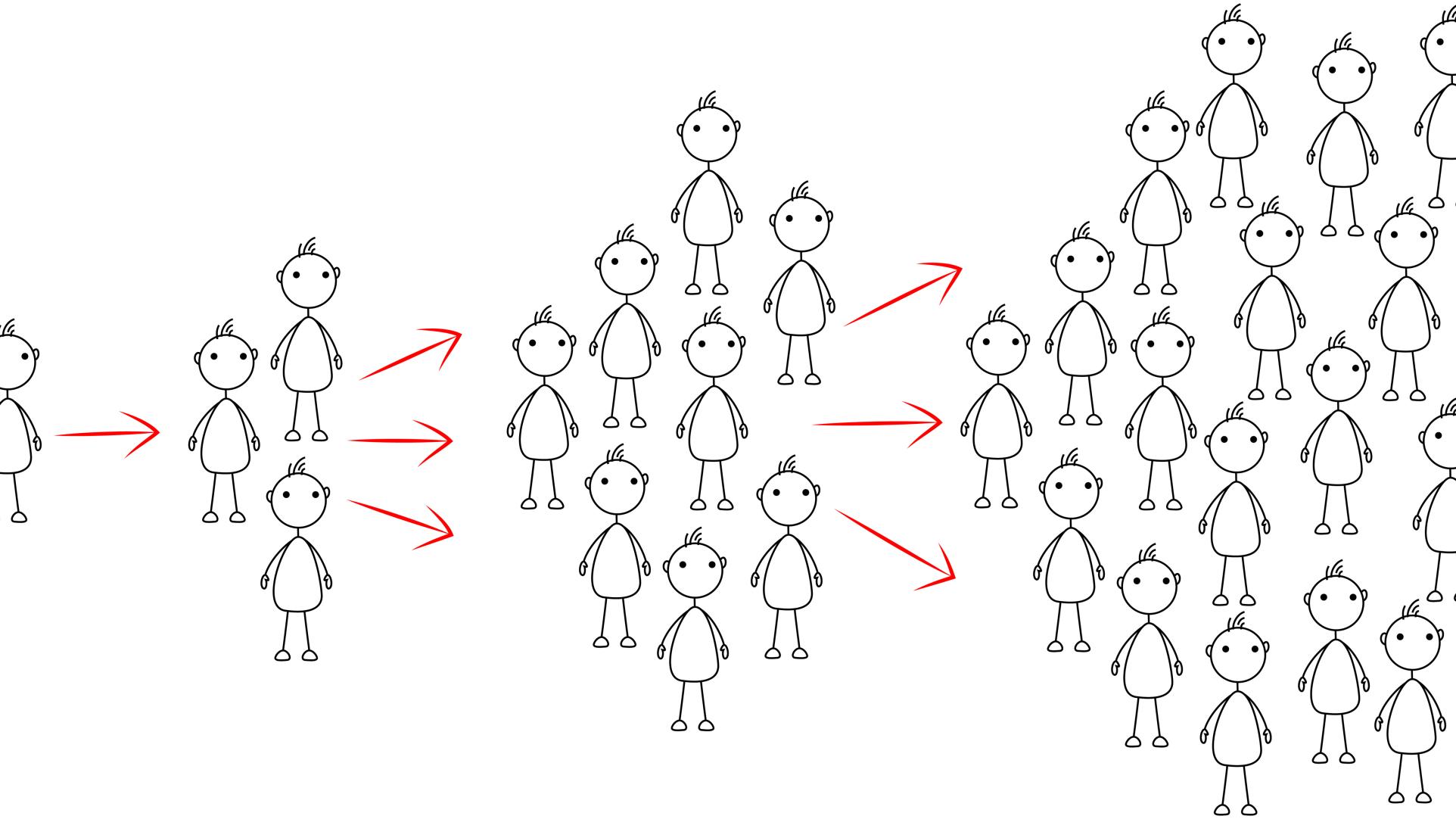“For when God made a promise to Abraham, since he had no one greater by whom to swear, he swore by himself, saying, ‘Surely I will bless you and multiply you.’”
Hebrews 6:13–14 ESV
God’s Promise to Abraham
When Abraham was 90 years old, God covenanted with His servant that He would increase Abraham’s descendants greatly. In his old age, Abraham must have wondered how that would happen since he had no children. Sarah, his wife, laughed at the ludicrous idea.
True to His word, God worked a miracle for Abraham and Sarah so they could add a son, who has been multiplied innumerable times over the many generations of history. God established Abraham as the “father of many nations.” His progeny proliferates even today in the primary religions of Christianity, Islam, and Judaism.
Since the time God began to increase Abraham’s seed, the Bible reveals other instances where this same principle of add-and-multiply occurs, even in the midst of famine. Let us examine a few.
Biblical Famine: Five Loaves and Two Fish
One of the most notable add-and-multiply stories in the Bible is not commonly thought of as a case of famine. Nevertheless, upon examining it closely, famine is apparent — spiritual famine. John 6:1–14 shares the story of how a little boy offered to give his lunch of five barley loaves and two small fish to Jesus, thereby adding to a miracle.
Because the Passover season was upon them, thousands more people than usual were in town for the festivities. Even though the disciples questioned Jesus’ thinking that this simple meal would be enough, they followed His command and seated the people. The blessing on the food produced enough delectable delights for thousands, plus twelve baskets of leftovers — talk about multiplication!
The Jews of Jesus’ day suffered greatly from a spiritual famine. Perhaps many of them did not realize that they were spiritually hungry, but Jesus put physical food in their bellies so He could nourish their hearts with spiritual sustenance.

Biblical Famine: Israel
Generally, the deprivation in the Bible signified that change was about to happen. Often, in the events surrounding these famines, we can see that the principle of add-and-multiply glorified God’s name in those happenings.
Several famines scattered throughout the Scriptures implement this principle. One of them is found in 1 Kings 17. Elijah announced to King Ahab that because he had allowed his wife to lead the Israelite nation into idolatry, they would not see any rain, let alone dew, for three-and-a-half years. After Elijah fled the king’s court, ravens fed him at the brook Cherith for a short while.
When the brook dried up, God sent Elijah to the home of a widow in Zarephath. Upon arrival, he asked for water and a little bread. She informed him that she had just enough for one more small cake for herself and her son. Then they would die because they had nothing else.
Elijah encouraged her to do what he had asked, and even though she would have nothing, she proceeded and placed the morsel in front of her guest. She added her last bit of food, and God multiplied her supply of ingredients for the duration of the famine. God blessed the widow further when her son, who was her only earthly source of income, died. Elijah subsequently raised him from the dead so he could continue to provide for his mother.
Famine in Samburu Land
Famine in Kenya’s Samburu territory has been going on for nearly a year. No rain. People witness their livestock perishing directly in front of them. The cows slurp up mud from a few puddles here and there when they can be found just for the moisture. People walk for miles to distant mountains to harvest large branches of leaves to carry home to their cows. The leaves only stave off starvation for a short while, for a person can only carry so much on their backs. One man went to the market and bought a case of imported tomatoes to feed his hungry cattle.
As dire as the situation is with the Samburu people, they were offered hope in March 2022. Mara Vision Outreach, a ministry that works only with the Samburu and their cousins the Maasai, raised donations to provide some provisions for the hungry Samburus. The team knew the first village was small where they planned to distribute food, so they took enough for 50 people — 150 people stood in line for their portion. The Mara Vision crew worked until every person was served. Instead of bread and fish, God multiplied beans, rice, and corn. The team stood in awe of what God had done, knowing that these precious souls could now be fed spiritually as well.

Responding Even When Things Do Not Make Sense
Nestled in 2 Kings 4:42–44, is another add-and-multiply story. A man from Baal-shalisha took his offering of first fruits to the prophet Elisha. Hungry people surrounded the two men, and Elisha told the gentleman to feed the hundred men. Just like Jesus’ disciples centuries later, doubt crept into the servant’s mind because he had taken only what was due to the man of God, not enough for one hundred hungry souls. Elisha told him: “Give them to the men, that they may eat, for thus says the Lord, ‘They shall eat and have some left’” (2 Kings 4:43 ESV). The food multiplied and fed every hungry soul.
Ellen G. White’s commentary on this passage of Scripture makes some noteworthy points to ponder:
It is the grace of God on the small portion that makes it all-sufficient. God's hand can multiply it a hundredfold. From His resources He can spread a table in the wilderness. By the touch of His hand He can increase the scanty provision and make it sufficient for all. …
The lesson is for God's children in every age. When the Lord gives a work to be done, let not men stop to inquire into the reasonableness of the command or the probable result of their efforts to obey. The supply in their hands may seem to fall short of the need to be filled; but in the hands of the Lord it will prove more than sufficient. …
Let none waste time in deploring the scantiness of their visible resources. The outward appearance may be unpromising, but energy and trust in God will develop resources. The gift brought to Him with thanksgiving and with prayer for His blessing, He will multiply as He multiplied the food given to the sons of the prophets and to the weary multitude.1
Call to Action
The
next time God calls you, and it seems impossible or makes no sense, how will
you respond? Will you move forward and walk by faith and not by sight (see 1
Corinthians 5:7)? Will you move forward, knowing God will sustain you?

- Ellen G. White, Prophets and Kings (Mountain View, California: Pacific Press Publishing Association, 1917), 241–243.




